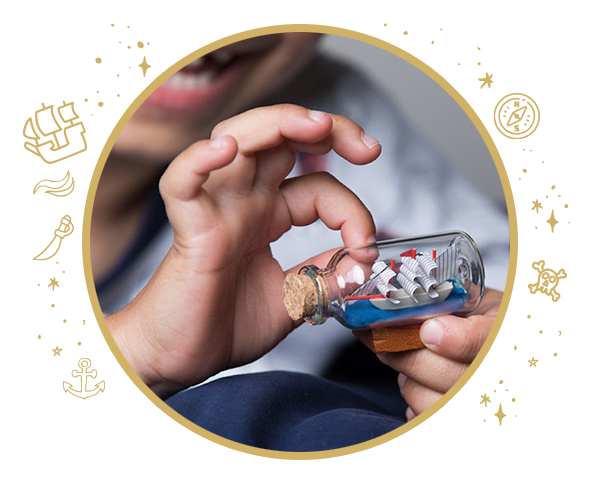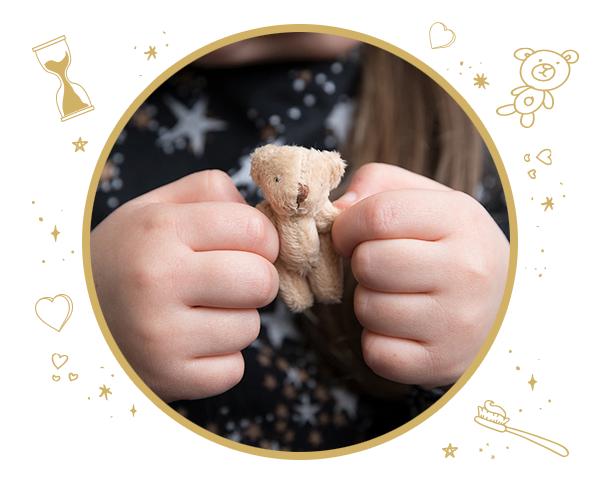We all want the best for our kids. We want to raise happy, mindful, grateful humans!
Thanksgiving is the time of year where showing gratitude is often thrust into the spotlight, but the truth is, gratitude is for all times of the year. Researchers have found that giving thanks makes you happier. Even in kids, gratitude has a high correlation with life satisfaction.
Of course as parents, it’s so much more than that. It’s about raising good, contributing members of society who understand that people, resources, or life shouldn’t be taken for granted. Both parents and educators have frequently expressed concern that “today’s kids are ungrateful,” so clearly, it’s something we need to be mindful of instilling in our kids.
Get our free download: Thanksgiving Gratitude Activities with Kids
With that in mind, here are our thoughts and tips to help your kids understand and feel gratitude:
Gratitude and childhood magic
Have you ever noticed that gratitude has a significant role to play in the overall magic of childhood? It’s a positive emotion—instead of tearing into one Christmas present and hurrying to the next, practicing gratitude means pausing to appreciate the gift. A grateful person acknowledges the thoughtfulness of the giver, and recognizes how it makes them feel valued.
Hey, we know, Christmas gift-opening is an extreme example. There’s so much excitement attached, and kids can get carried away in the moment. But with the upcoming holiday season, why not try “training the brain” for grateful thoughts? In truth, it’s an area where many adults can benefit, too.
You might be wondering, how is gratitude magical? Well, studies have found that practicing gratitude makes us happier and healthier overall. For example, you might see grateful kids...
- Helping others
- Expressing thanks
- Building strong relationships with others
- Sleeping better
- Showing greater resiliency
- Being less materialistic
Grateful kids also tend to have and offer better social support, be more optimistic, and feel connected to a caring community. Mental health crises among kids are often a concern, and gratitude has a role to play in building them up.
Cultivating gratitude in kids
In the fast pace of today’s society, it’s often tricky to find a good balance. More things are easily accessible. It feels like kids have more opportunities, toys, or experiences than previous generations, but less appreciation. Is this really true? We don’t know if kids really are less appreciative, but we do know you can help to cultivate gratitude in your kids, no matter their circumstances. Here are some ways:
Model gratitude yourself
This is the first and most obvious strategy. Kids are sponges for the environment they grow up in. They copy your mannerisms, actions and even attitudes toward different situations. Gratitude tends to be born through a loving connection with other grateful people, and this is something you can model.
How can you express gratitude? What if it’s not really something you’ve “trained” in yourself? Fortunately, it’s not really about grand gestures, but all the little things that add up to showing appreciation. Consider the words you use—never miss an opportunity to thank someone! Practice daily appreciation for small things—“Look how colorful the fall leaves are. We are so lucky to live in such a beautiful place!”
You can use words, writing, acts of reciprocity, and gestures just because you feel like spreading joy. Talk to your kids about the altruistic intentions behind things people do for you, and how much you value those gestures.
Modeling gratitude for simple non-material things is also a good way to help kids learn to value those things over materialism. “Doesn’t this old tree provide amazing shade on this hot day?”
Take time and be present
Kids, including your teenagers, actually want to spend time with their parents. This has been reported in countless studies, but it’s always a tricky balance. For parents, it often comes with much guilt attached. It’s common to feel torn between work and other responsibilities, and the feeling that you need to spend more time with your kids.
The good news here is that recent studies have found that it’s not so much about the amount of time you spend, but the quality of that time. What does this have to do with fostering gratitude? Quality time involves savoring the moment, appreciating the small things and just being present together.
This means being fully present, even if you only have short periods of time that you can snatch. Put the smartphone away and focus on your time together. This helps to model empathy, which is an essential component of gratitude.
In the hustle and bustle of the holiday period, perhaps you can find a way to take care of things together. You might have a tradition of your kids helping in the kitchen—maybe they even get to learn a “secret” recipe, for example. The little things all add up to help them value the non-material things in life.
Encourage your kids to help others
Fostering generosity and helping others are keys for grateful kids. Helping in whatever way they can helps kids to feel connected to those whom they are assisting. They can develop strong social skills and learn to express gratitude via the expressions of those they help.
In some cases, helping out can throw the spotlight on how much they have to be grateful for in their own lives. There are many families with a tradition of service during the holiday season and beyond, often helping out those who are in-need. It can be humbling to serve and to realize that not everyone enjoys the same advantages.
There are many different, age-appropriate things you can do to create a tradition of service. It might be volunteering to serve a holiday meal, or making treats or gifts to pass out. Maybe it’s offering your time to people who otherwise don’t have family or friends nearby. Whatever you decide, part of that service is about teaching them that other people matter and that helping others should be a priority.

Help them find what matters
Every person is different in terms of their passions and what they value. Assisting kids to discover their own passions can also help them to find meaning and purpose. It helps them to nurture their values and to appreciate connection with something they find meaningful.
What might this look like? Kids of all ages can have interests in social issues and making a contribution. Even younger kids feel proud that they can help with something that matters to them. Think about things like the environment, animals, and people. Help your kids to learn as much as they can about the issues that matter to them and to find ways to make a contribution.
Gratitude often comes from feeling valuable and valued yourself. This is definitely something you can help to nurture now, and as a regular part of your lives.
Hold onto magic this Thanksgiving
It’s been a tough year, but there are still many reasons to choose gratitude and to encourage your kids to express it too.
Gratitude will help them to hold onto the magic of childhood for that much longer. It helps them to be happy, mindful, and fulfilled.
Whether you have a tradition of everyone saying what they’re grateful for before Thanksgiving dinner or not, there are many other ways to make sure gratitude is a welcomed member of your household. We hope you can use some of the tips shared here!
And finally, happy Thanksgiving from us. We appreciate you!
Get our free download: Thanksgiving Gratitude Activities with Kids




















